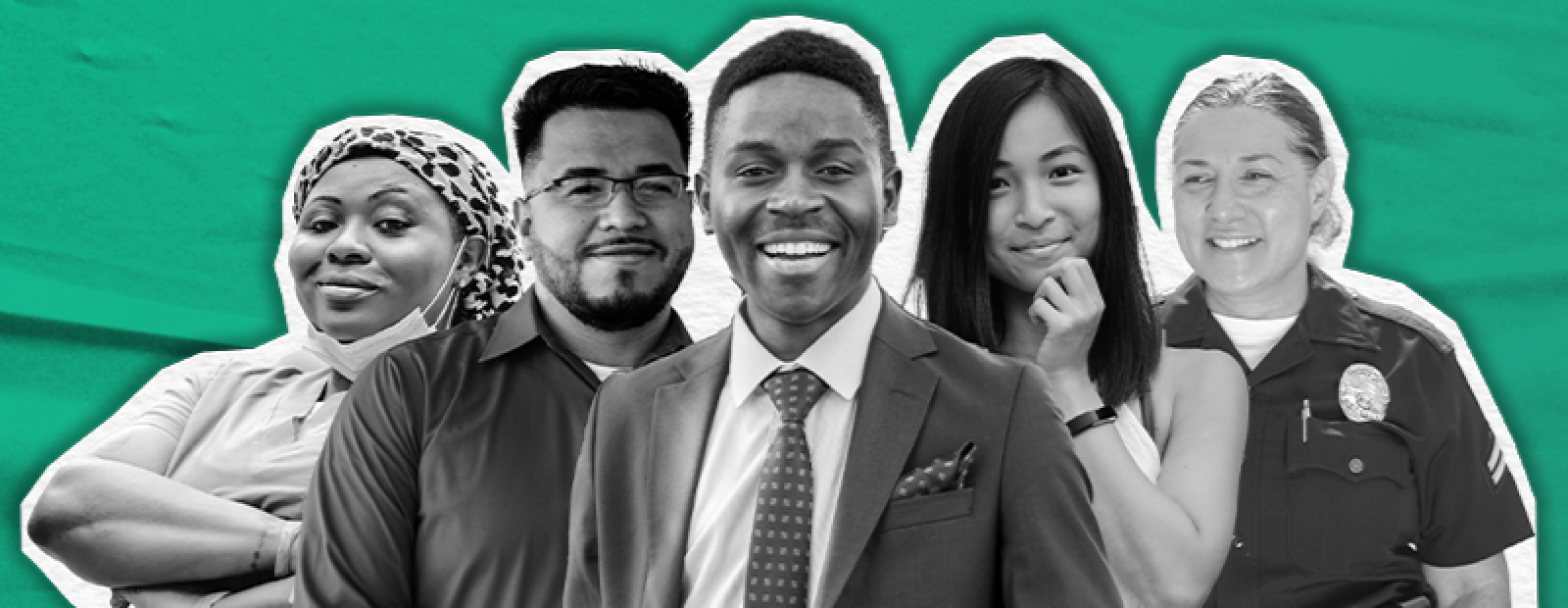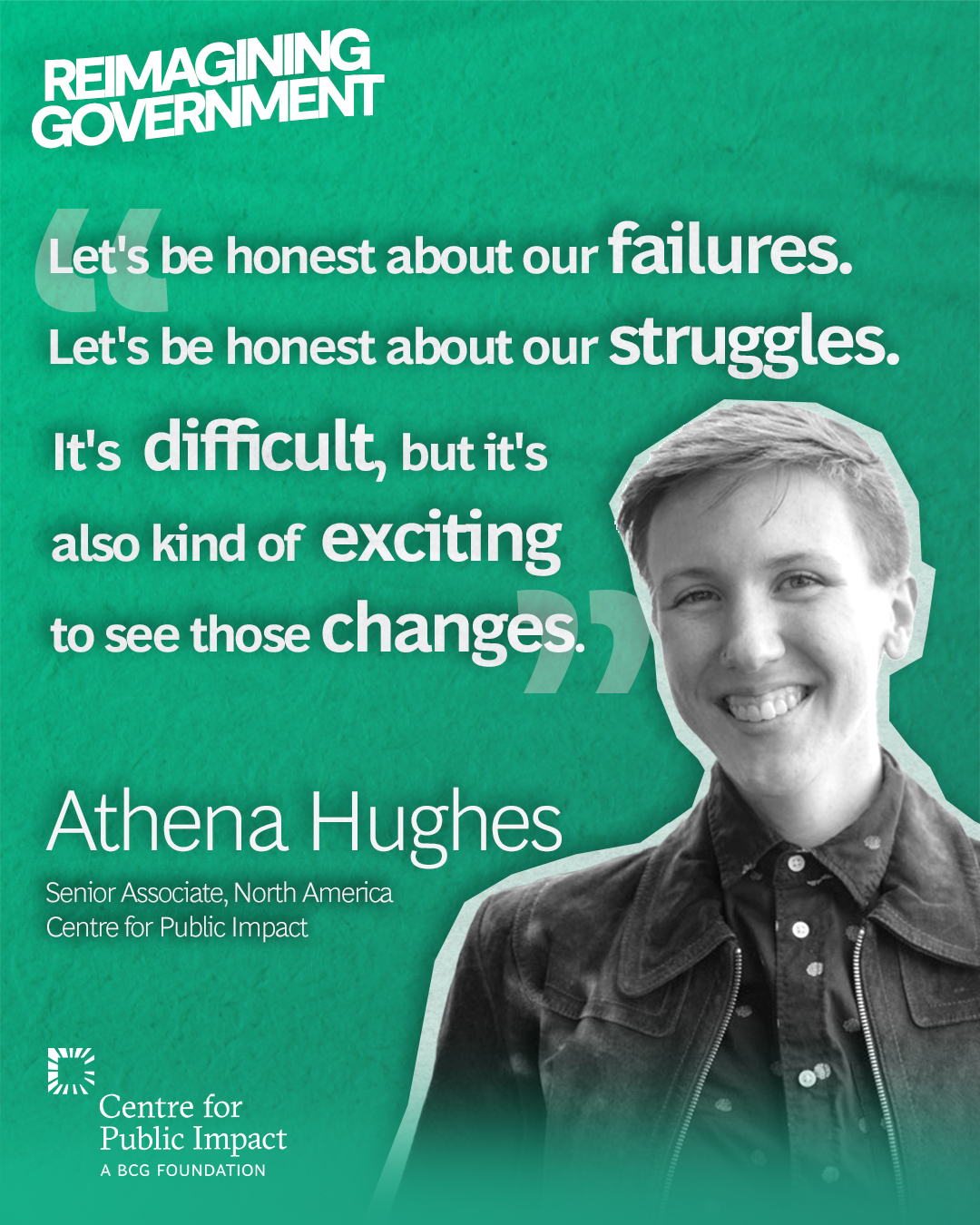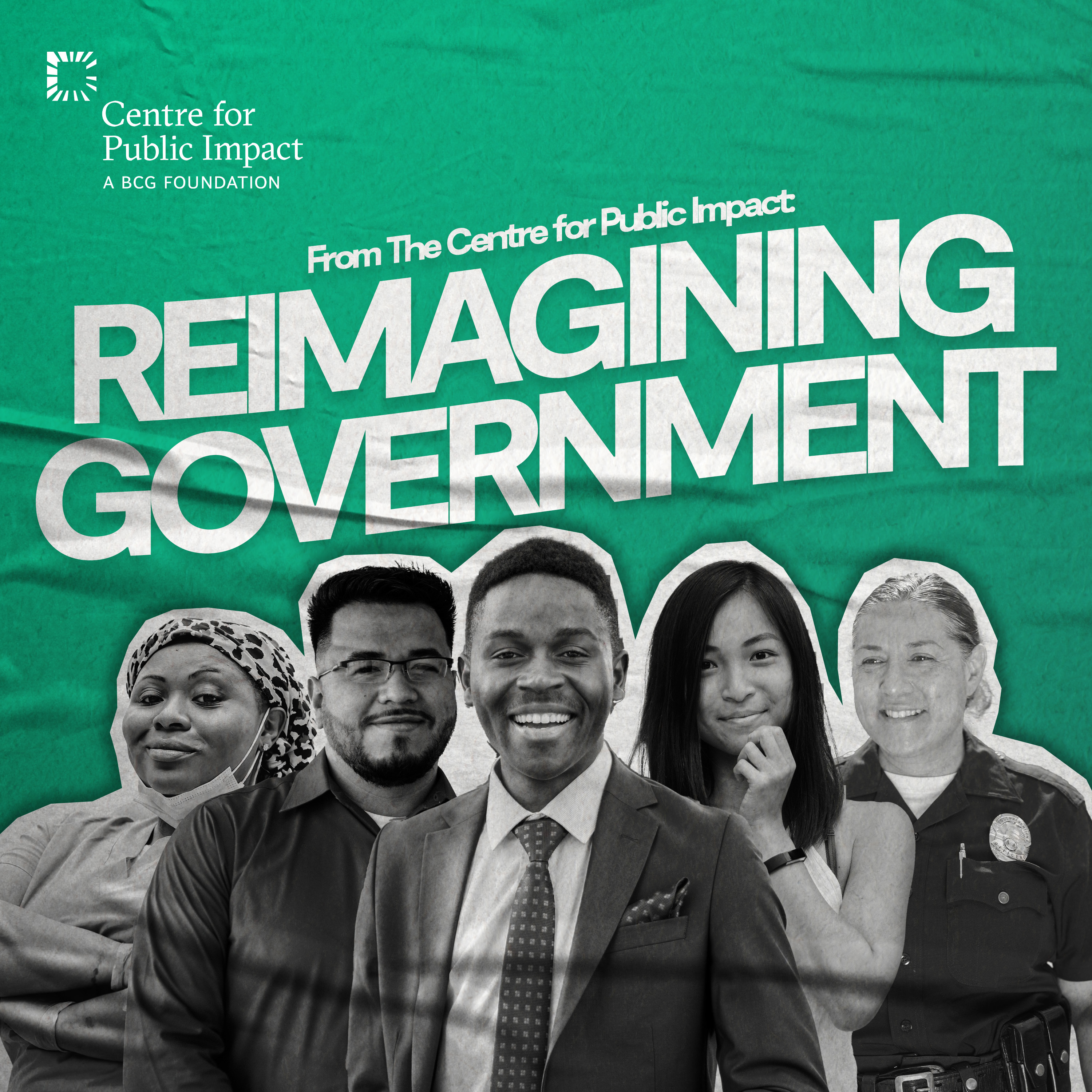
Five things we recently learned about difficult conversations


That's a wrap on season 2 of @CPI_foundation's #ReimaginingGovernment podcast! Listen to @_AdrianBrown, Naja Nelson, and Athena Hughes revisit highlights and delve into the topics covered.
Share articleSeason 2 of @CPI_foundation's #ReimaginingGovernment podcast explored failure, imagination in government, what on earth a paradigm shift is, and more. Listen to the wrap-up episode to hear lessons learned.
Share articleFrom governments stepping up and building legitimacy, to the power and opportunity for change in difficult conversations. Explore 6 key takeaways from season 2 of #ReimaginingGovernment.
Share articleWhat have we learned from season two of Reimagining Government? Athena Hughes, Naja Nelson, and our host Adrian Brown revisit highlights and delve into the topics we covered.
In season two episode seven of our Reimagining Government podcast, host Adrian Brown revisits the six themes raised throughout the season:
Earned legitimacy in government
Long-term thinking
Paradigm shifts
Government failure
Social imagination
Difficult conversations
Adrian is joined by previous co-hosts Naja Nelson and Athena Hughes to reflect on some of the season’s highlights. Listen to the full episode below or click here.
In season two of the Reimagining Government podcast, we spoke to a number of great guests about a range of important themes and topics. Here’s our top six takeaways from the season - one from each episode.

In episode one, we spoke to Jaime Junior about how governments can step up their efforts to engage with communities and build trust. She shared four ways governments can earn the right to govern:
Officials must understand the people they’re serving
Lived experience should be valued to support communities & influence decisions
Leaders should listen to as many voices as possible, particularly marginalised groups
Governments should take on other perspectives
Jamie said:
“Legitimacy in government, to me, means transparency. It’s the willingness to step out of that policy box, and it’s about being open to what needs to happen in order for you to deserve your purpose as government - which is making it better for the people.”
The second episode discussed long-term thinking and the different models that could help us plan for the future. It also explored the need for transformative thinking and how it can change individuals, communities, cities, and society as a whole.
Jayne Engle from 7GenCities shares how they are thinking for the future:
“We’re working on systemic change and new financial instruments in order to live in these different futures. So, things like facilities for outcome-based financing, as well as a next-generation civic infrastructure fund. We’re also taking into account different value creation models that actually recognise not only common good outcomes but also that public investment needs to have public outcomes as opposed to just privatised ones - which is often what happens now.”
As discussed in episode three, getting to grips with what paradigms are helps us understand how change happens. Toby Lowe (CPI’s Visiting Professor in Public Management) said:
“Paradigms are the water we swim in and the unseen structure that holds our beliefs and actions in place. But once we notice they exist, we have a choice: stick with the status quo or shift things. Either way, it’s a choice that we get to make.”
He also spoke about how paradigms change and can help us create radical change within public service. He said:
“It begins (and ends) with people doing ‘normal science’ - creating questions and doing research which answers them. Some of this research generates anomalies - observations the existing paradigm can’t explain. If the anomalies are serious, they’ll start to pile up. And too many anomalies can push the paradigm into crisis, meaning people will begin to lose faith in the overall story. At this point, new stories can emerge. By offering an explanatory story that resonates most with people’s observations, one (or more) of these can emerge as the new paradigm - the new normal.”
Episode four highlighted how much more comfortable governments need to be with failure. There needs to be more conversation around it because this will allow leaders and institutions to be more open to the concept of it. Athena Hughes, our guest co-host for the episode, spoke about how this can impact public relations. She said:
“When it comes to leadership and public facing roles and politicians, I think failure is a really vital area to talk about because people tend to not trust politicians. We only ever hear the A-sides from politicians, and a lot of government leaders and people tend not to trust that. When you talk openly about the places you failed and what you learned, it creates an opportunity to have an inroad to public trust.”
Social imagination helps us to develop communities that work for the collective rather than a select few. In episode five, Hannah McDowall (Co-Director at Canopy - A Social Imagination Project) spoke about this:
“If we want to see solutions, we need to meet the challenges we're facing in society. We need to do things differently. And social imagination is one option we haven't lent into enough because most of the people who’re making the decisions come from societies or cultures dominated by White European thinking.”
Adrian added:
“Change doesn't start by saying, ‘let's imagine a different experience’. It starts by saying, ‘Let's imagine a different set of values, different framing, and something much more foundational, which we can then build out.’”
It’s important that people working in public service have as many complex conversations as they can. Why? Because they create opportunities for change and open doors for new connections and perspectives. Our co-host for episode six, Karen Lawson, gave her thoughts on courageous discussions between government and individuals. She said:
“I think it’s about who we're talking to. Do we have groups or individuals that we talk to or rely on? Who are the people we actually need to be having courageous conversations with? Who might we be avoiding? Having individual time with people cannot be underestimated. So while we might think the government's huge, there's something about the power of an individual conversation.”
The full wrap-up episode is available now on all major podcast listening platforms. To listen, use the player below or click here.

What have we learned from season two of Reimagining Government?
Athena Hughes, Naja Nelson, and our host Adrian Brown revisit highlights and delve into the topics we covered.






